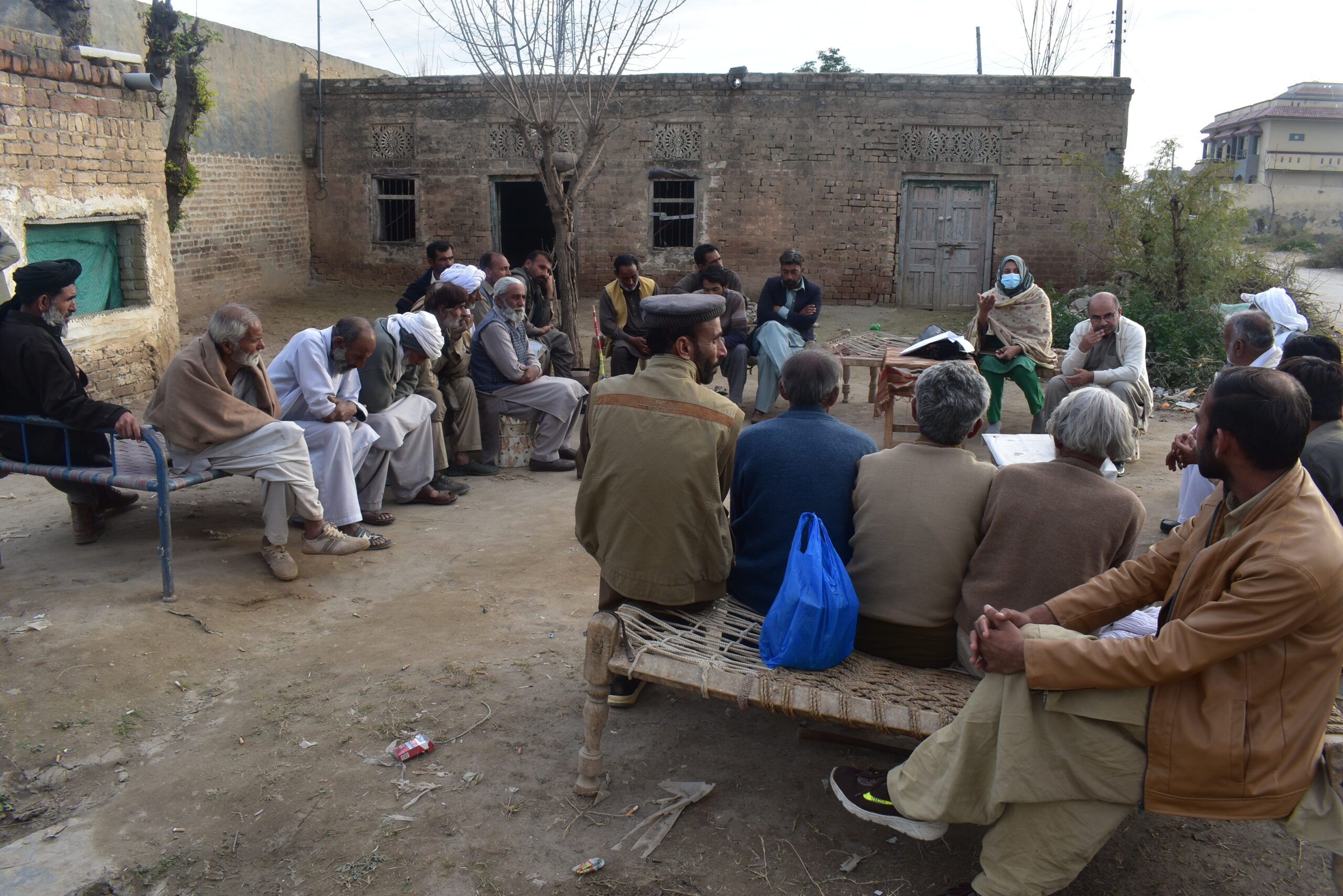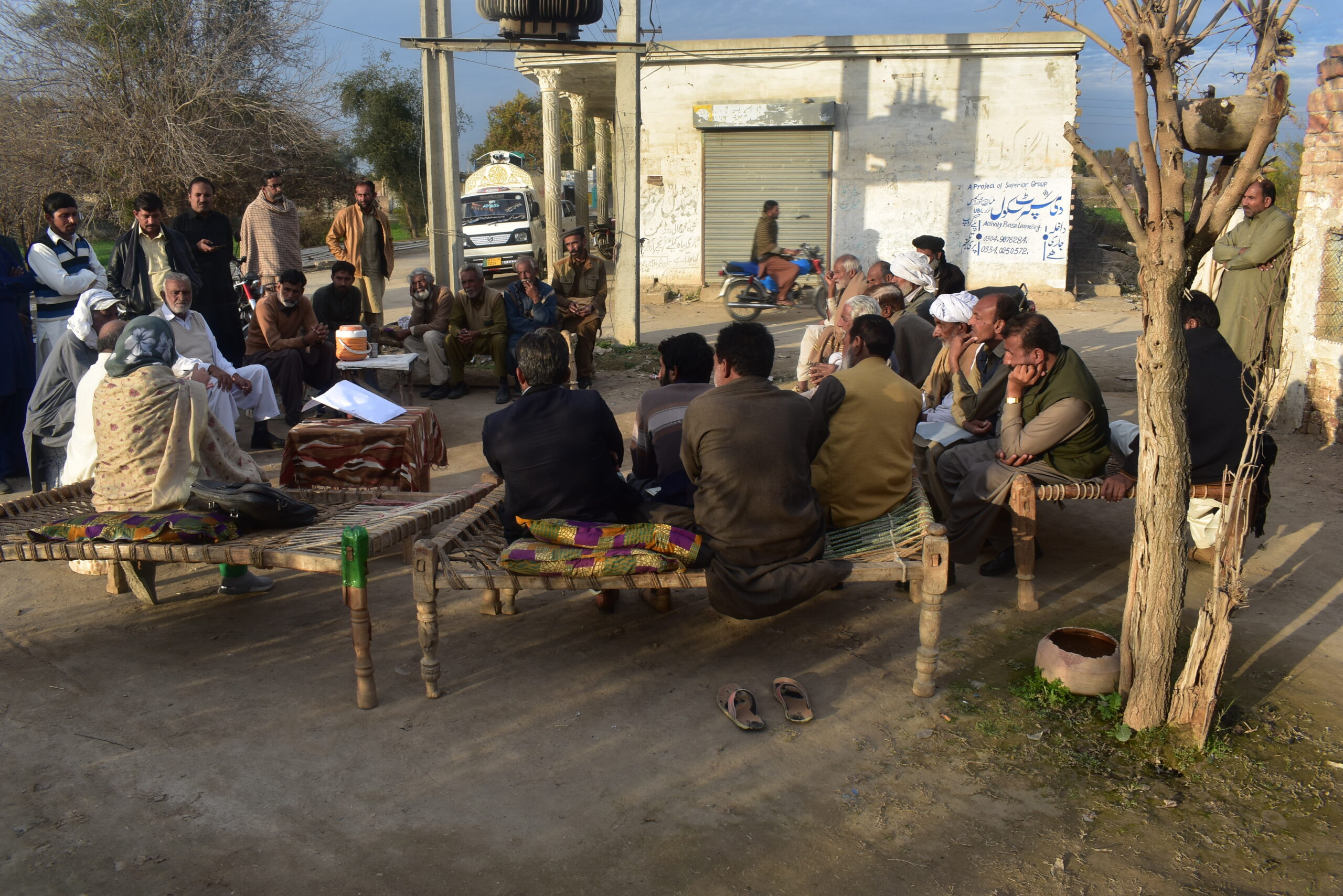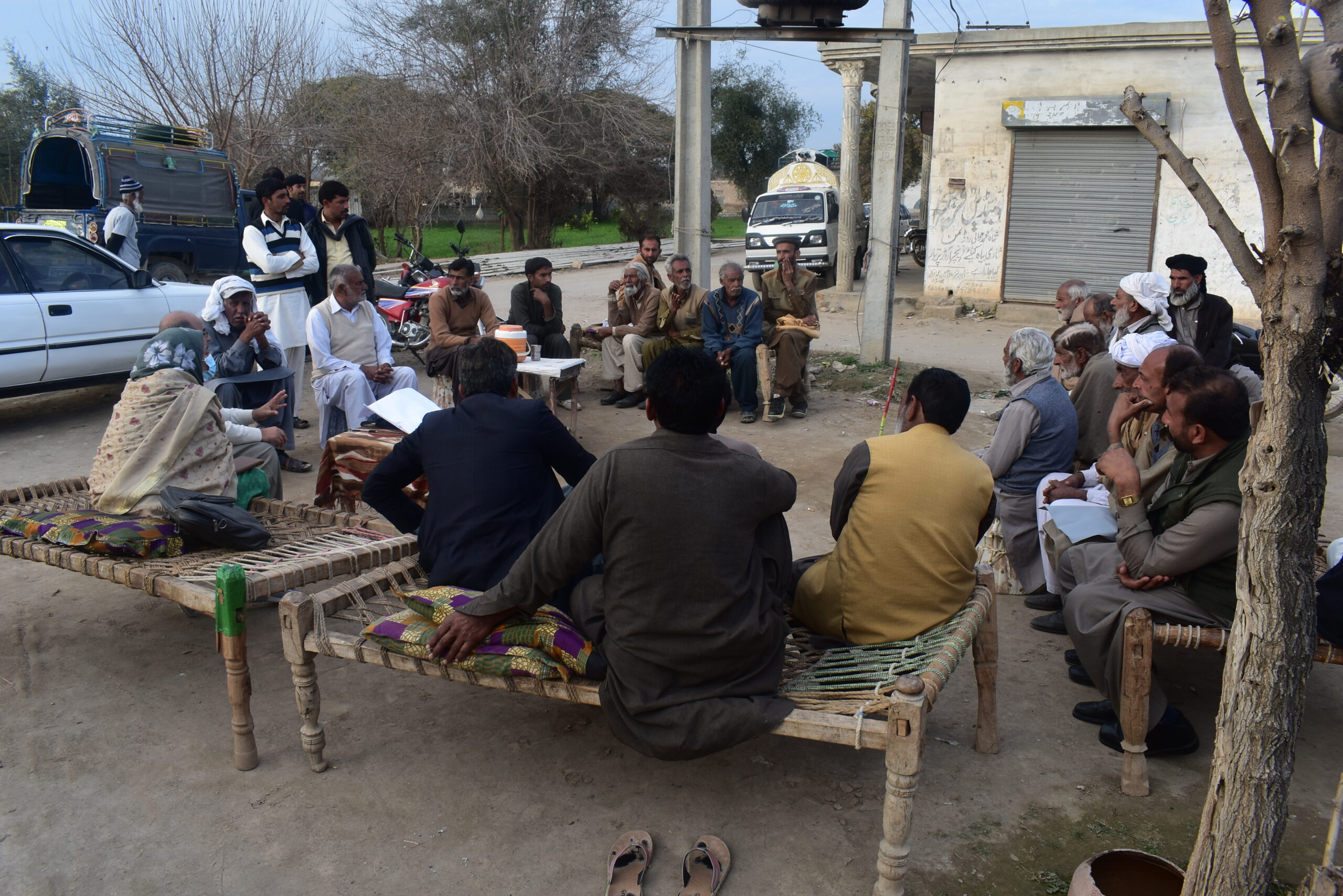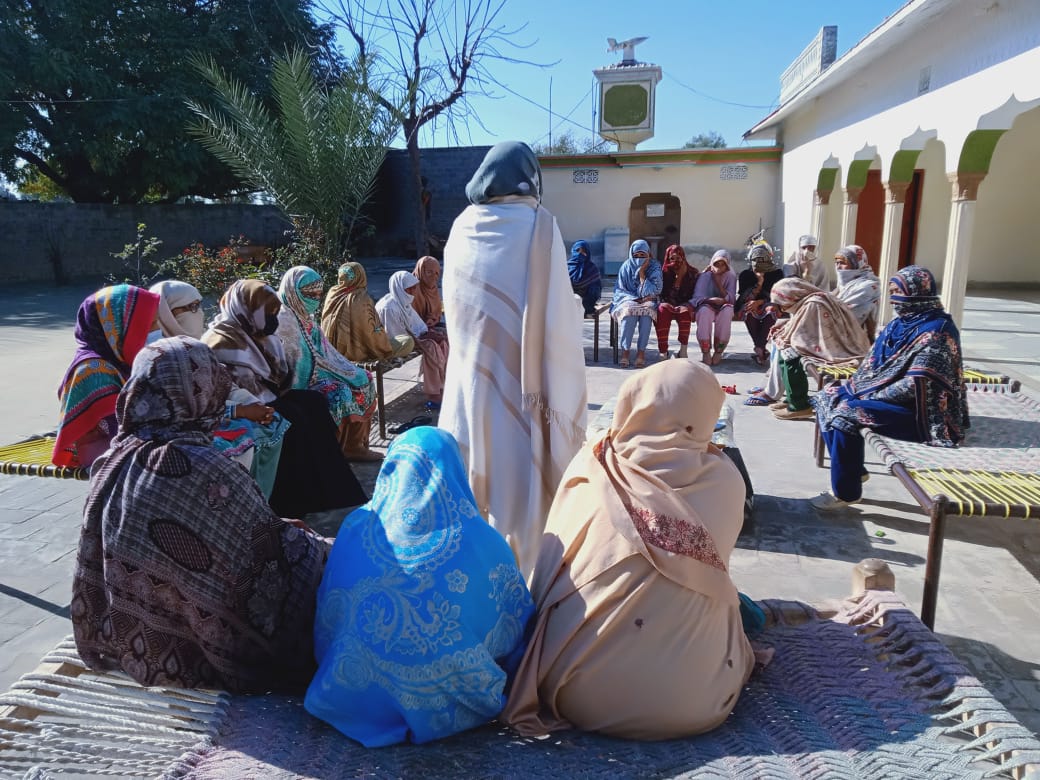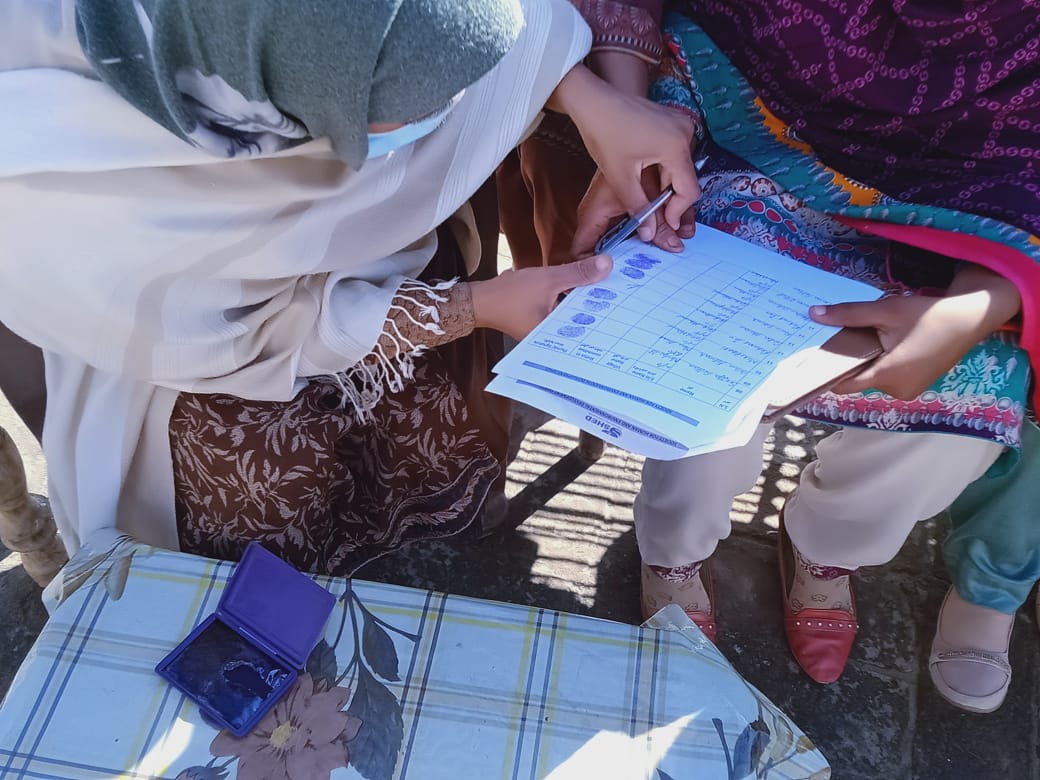Climate-smart adaptation plan for the Chakwal District farming community
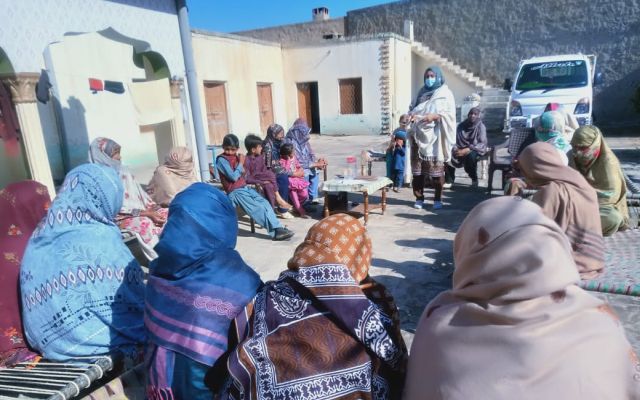
The Chakwal District in Pakistan is a rain-fed agroecological region. The area is highly vulnerable to climatic changes such as increased temperature and uncertain precipitation, which directly impacts local farming. The IKI Small Grants project aims to support the adaptation of farming communities to the impacts of climate change in their region by introducing measures to sustainably enhance their crop productivity.Through an adaptation plan developed according to the farmers’ needs, adaptation measures are implemented in Koterha village Union council Jabbi Dilawar Shah and farmers receive trainings to improve their administrative and technical capacities on climate change adaptation and climate smart agriculture practices.
INITIAL SITUATION
Chakwal District is part of four agroecological zones of Punjab province . It has a total area of around 700,000 hectares of land with an average landholding of 2.5 hectares. The Global Climate Risk Index ranks Pakistan as the 5th most vulnerable country to climate change. For agriculture, Chakwal depends on the monsoon rains and winter rains. However, uncertain rainfall due to climate change is increasingly affecting the water availability. Among other things, this causes lower productivity in Chakwal, as crop yields are vulnerable to changes in climate variables.
TARGET GROUP
This IKI Small Grant project targets farming communities that are actively engaged in agriculture activities in the village Koterha. The beneficiaries include both landowners and tenants. The project forms four Farmers Committees, half of which are women’s committees and half men’s committees, to lead and pilot the overall farmers’ adaptation plan.
APPROACH AND ACTIVITIES
The IKI Small Grants project aims to implement adaptation measures to protect crops from climate change in Koterha Village. The Society for Human & Environmental Development (SHED) collects information on farmers’ vulnerability and capacity by organising community meetings in the project area. For this, they form women and men farmer committees. Technical experts join the conduction of assessments with the farmer committees, where local indigenous knowledge of farming communities and scientific information of the government departments are included.
The IKI Small Grants project includes the development of a climate-smart adaptation plan for the farmers. The main information for formulating this adaptation plan comes from brainstorming sessions with men’s and women’s committees and technical experts to identify actions based on vulnerabilities and capacities already undertaken by farmer groups and technical experts.
Farmer’s committees further implement the adaptation plan. The project installs four solar-powered tube wells at different locations in the project area for irrigation purposes. Based on the assessment report, the farmer committees identify three further measures that meet the needs of the local community in terms of climate change adaptation. Other measures could include the construction of irrigation channels , protection walls and land levelling.
Based on the findings of the assessment report and the adaptation plan, the project develops a series of capacity building trainings for farmers. These trainings focus on the administrative capacity of farmer committees, including record keeping and conducting meetings. SHED organises special trainings for female farmers on management and climate change adaptation capacities. This includes trainings on kitchen gardening and home based poultry. Farmers are capacitated on skills regarding climate change adaptation and climate smart agriculture practices.
LATEST PROJECT HIGHLIGHTS AND IMPACTS
- Formation of farmers’ committees with a clear focus on gender parity
- Extensive analysis and data collection on adaptation needs in the project’s communities
- Development of a risk and opportunity assessment for the region
CAPACITY DEVELOPMENT
IKI Small Grants supports SHED in their organisational capacity development in:
- Human resource management
- Social mobilization and institution development
- Monitoring and evaluation
- Financial accounting and management
- Project cycle management and proposal writing
ABOUT THE ORGANISATION
The Society for Human & Environmental Development (SHED) is a NGO that aims to work for the development and empowerment of communities through sustainable development and safe environment. Its mission is to provide services in the humanitarian and development context through social mobilization, participation, environmental initiatives and advocacy for sustainable human and environmental development.

